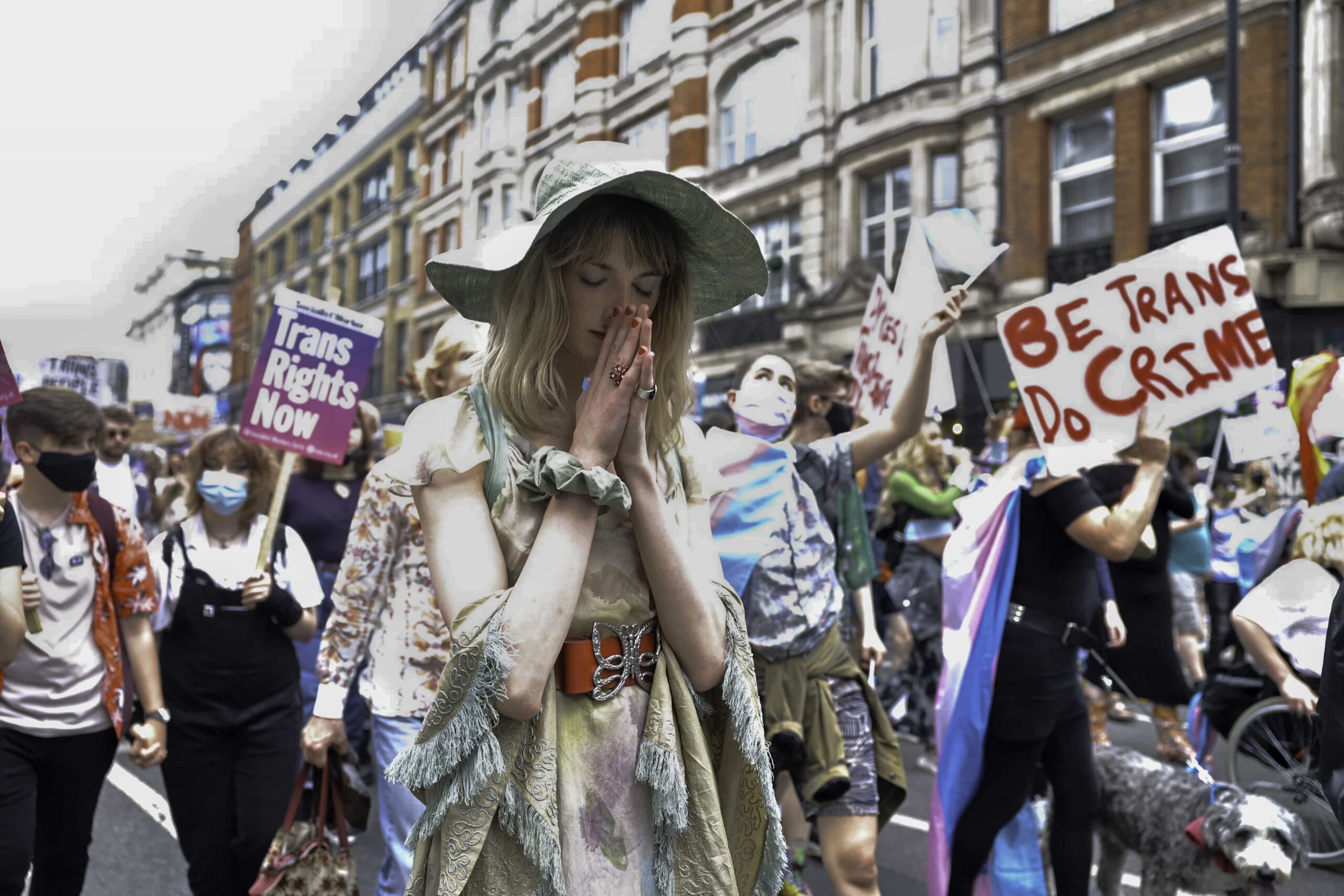The U.K. government has confirmed this week that its already controversial ban on anti-LGBTQ+ conversion therapy will not cover “consenting” adults. Critics say that limiting the law’s scope to patients to who are “forced” to undergo these treatments could allow conversion therapy to continue in the U.K. virtually unabated.
On May 10, Prince Charles delivered the Queen’s Speech on behalf of his mother, Queen Elizabeth, who was unable to deliver the address due to her ill health. In remarks delivered at the opening of Parliament, the royal signalled the Conservative government’s intention to push through a bill this legislative session that would outlaw treatments intended to change an individual’s LGBTQ+ identity.
“Legislation will also be introduced to ban conversion therapy,” Prince Charles said in the Tuesday speech.
Although Queen Elizabeth previously pledged to ban conversion therapy in her 2011 Queen’s Speech, the proposed law stops short of a full ban. Briefing notes released by the government this week confirmed that the Conversion Therapy Bill will only affect “practices intended to change sexual orientation,” confirming the Conservative Party’s prior assertion that anti-trans conversion therapy will not be covered.
In April, Prime Minister Boris Johnson claimed there were “complexities and sensitivities” regarding the subject of banning conversion therapy for trans patients.
“I don’t think it’s reasonable for kids to [make] decisions about their gender or irreversible treatments that they may have,” he told the U.K.’s Channel 4 news, despite wide support among the British public for a fully inclusive conversion therapy ban. “I think there should be parental involvement at the very least.”
After thousands protested the government’s stance in the streets last month, LGBTQ+ groups again criticized the U.K. government’s proposed ban as flawed and potentially harmful. Around 13 percent of trans respondents to a 2017 government survey said they had been subjected to or offered treatments intended to alter their gender identity, nearly twice the number of cisgender respondents who had been exposed to conversion therapy.
“A ban on conversion practices that doesn’t cover both sexual orientation and gender identity protects nobody,” a spokesperson from Stonewall, the U.K.’s largest LGBTQ+ charity, says in an email to Xtra.
But the problems with the U.K.’s ban go deeper: The 140-page document released earlier this week indicates that the law will only affect adults “who do not consent and who are coerced or forced to undergo conversion therapy practices.” That means conversion therapy will remain legal if it is considered voluntary.
Opponents of the government’s position say the blind spot could result in a slippery slope. It offers a potential defence to conversion therapists who can claim that they only offered treatments like shock therapy and aversion techniques—which have been likened to “torture” by human rights experts with the United Nations—because patients or their families sought them out.
Coercion itself is also loosely defined: would a patient who received treatment at the urging of relatives who threatened to disown them unless they underwent conversion therapy be able to claim they were “forced”?
“By creating a loophole of consent, the government continues to ignore the advice of legal experts and survivors like myself, who know that this will continue to put many lives at risk.”
“Globally, all recent bans have covered both, and also made it clear that no one can truly consent to abusive conversion practices,” Stonewall said. “The U.K. government must stop playing politics with our lives and introduce a ban with no loopholes, that protects all LGBTQ+ people.”
Another possible issue is religious exemptions. Last year, Johnson reportedly wrote a a letter to the Evangelical Alliance, a right-wing Christian lobby group based in the U.K., promising that the government would continue to allow adults to receive appropriate pastoral support (including prayer), in churches and other religious settings, in the exploration of their sexual orientation or gender identity.”
While it’s unclear whether the ban includes faith-based conversion therapy, a spokesperson for the government appeared to confirm that it would not target “pray the gay away” treatments.
“It’s important that the freedom to express religious teachings is not affected by the ban,” a spokesperson told press at a briefing held earlier this week, in comments cited by The Guardian newspaper. “Individuals will still be able to access support and counsel from religious leaders should they wish.”
The lack of protections for individuals subjected to faith-based conversion therapy could mean that the vast majority of such practices remain unrestricted. In a 2018 U.K. government survey, a majority of respondents (51 percent) who said they were survivors of conversion therapy reported that the treatment took place in a religious setting.
Jayne Ozanne, chair of the Ban Conversion Therapy Coalition and a survivor of religious conversion therapy herself, said the government’s proposed ban was inadequate.
“It is of great concern that they are creating so many loopholes and leaving so many people unprotected,” she said in a thread posted to Twitter on Tuesday. “By creating a loophole of consent, the government continues to ignore the advice of legal experts and survivors like myself, who know that this will continue to put many lives at risk.”
Although the proposed ban covers both England and Wales, the Welsh government announced last month that it is planning to disallow conversion therapy completely, including treatment for gender identity.


 Why you can trust Xtra
Why you can trust Xtra


